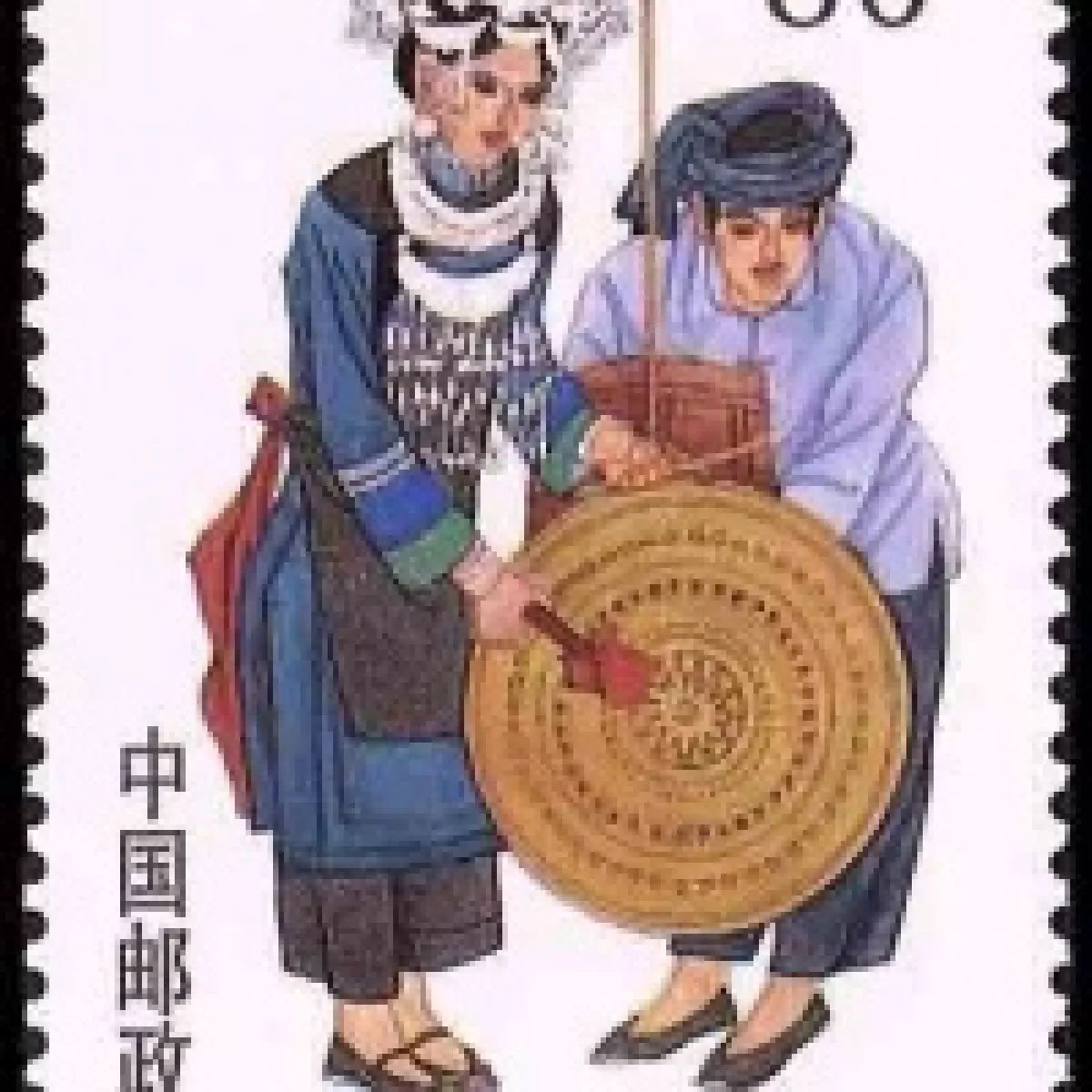The Shui people, a Chinese ethnic group, have a population of 406,902. They primarily reside along the upper reaches of the Longjiang and Duliu rivers in southern Guizhou Province, with some communities also found in the northwestern part of the Guangxi Zhuang Autonomous Region.
A Land of Plenty
The Shui people inhabit areas abundant in natural resources. Fish and rice are plentiful, and they also cultivate wheat, rape, ramie, and a variety of citrus fruits. The forests provide timber and medicinal herbs, and the rivers are teeming with fish.
 Caption: Ethnic Shui, Chinese Minority Groups
Caption: Ethnic Shui, Chinese Minority Groups
Language and Cultural Heritage
The Shui language belongs to the Zhuang-Dong branch of the Chinese-Tibetan language family. Although they once had their own writing script, the Shuis now predominantly use Chinese in their daily lives. However, they have a vibrant oral tradition and artistic heritage, including poetry, legends, fairy tales, and fables. Their stories, often highly romantic, highlight the diligence, bravery, wisdom, and love of the Shui ethnic group.
Music, Dance, and Handicrafts
Music plays a significant role in Shui culture. Their songs are usually performed without musical instruments and fall into two categories - "grand songs" sung during work and "wine songs" performed at wedding feasts or funerals. The Shui people excel at dancing, with the "LuShuing Dance" and "Copper Drum Dance" being popular during festive occasions. Traditional musical instruments such as gongs, drums, luShuing, huqin, and suona horns accompany their dances. Additionally, the Shui people are skilled craftsmen, creating beautiful embroideries, batiks, paper cuts, and woodcarvings.
Lifestyle and Traditions
The Shui people have distinct traditional attire - men wear long gowns and black turbans, while women don collarless blue blouses, black trousers, and embroidered aprons. On festive occasions, women wear skirts adorned with various silver earrings, necklaces, and bracelets. Their hairstyles are typically styled in buns.
Shui diets mainly comprise rice and fish, supplemented with corn, barley, wheat, and sweet potatoes. Special occasions are marked by the offering of rice liquor to entertain guests or as a tribute to ancestors during sacrificial ceremonies.
Changing Traditions
In the past, Shui marriages were often arranged by parents, but since the establishment of the People's Republic in 1949, these feudal practices have ceased to exist. The Shuis now practice monogamy, and young people have the freedom to choose their spouses.
An Enriching Future
The Shui people celebrate their cultural heritage with a unique calendar, highlighting the beginning of a new year in the ninth lunar month. Their biggest festival, the 'duan' holiday, is celebrated with grandeur after the autumn harvest in the 11th lunar month. The festivities include horse races, plays, and feasting, offering a glimpse into the vibrant Shui culture.
Since the founding of New China, the Shui people have experienced a revival and growth in production. Agriculture has thrived with extensive irrigation systems, and industries such as chemical fertilizer, coal mining, farm machinery, sugar refining, and ceramics have emerged. Additionally, transportation infrastructure has improved, connecting the Shui community with other areas and fostering intercultural exchange.
Education and healthcare have also seen significant advancements. Schools have expanded, and medical facilities have been established, including efforts to combat malaria.
The Shui people's rich cultural heritage continues to thrive, as they preserve their traditions while embracing a future of cultural exchange and development.

















